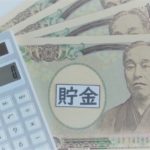Differences between Permanent Residence and Naturalization in Japan
For foreigners who wish to stay in Japan permanently, there is the option of obtaining a permanent residence permit or applying for a naturalization permit. But what are the differences and characteristics of the two options. For many people, it is important to understand both options in order to make a decision. In this topic, we will explain the difference between permanent residency and naturalization.
What is permanent residency?
It is a residence status that allows you to stay in Japan without changing your foreign citizenship. This is one of the residence statuses specified in Article 22 of the Immigration Control and Refugee Recognition Act.
To obtain permanent residency, you must meet certain requirements. These include conduct requirements, such as no traffic violations or criminal record and regular public pension payments, independent living, such as a stable income and life, and recognition as useful to Japan.
If you obtain permanent residence, you can stay in Japan without changing your citizenship.
An important feature is also that there are no work restrictions and social trust can be acquired.
The residence permit is renewed every 7 years, which is less burdensome compared to other visas.
・Special exception for the 10-year residence requirement
There is an exception that allows you to apply for a permanent residence permit even if you have not lived in Japan for 10 years.
1. If you are the spouse of a Japanese citizen, permanent resident or special long-term resident, you must have been legally married for at least 3 years and living in Japan for at least 1 year. For children, etc., you must have resided in Japan continuously for at least 1 year.
2. Continuous residence in Japan for more than 5 years with “Long Term Resident" status
3. If you have been recognized as a refugee, you must have continuously resided in Japan for at least 5 years after recognition.
4. If you have made a recognized contribution to Japan in the fields of diplomacy, society, economy, culture, etc. and have lived in Japan for at least five years.
What is naturalization?
Naturalization is the acquisition of Japanese citizenship by a foreign national.
When you obtain Japanese citizenship, you can use the name you had before you applied for naturalization, but you can also use the Japanese name you chose for yourself.
However, there are restrictions on the name after naturalization is approved. The Family Registry Act states that “the range of ordinary and simple characters shall be determined by a regulation of the Ministry of Justice."
There are seven requirements for simple naturalization, including residency, ability, conduct, livelihood, no dual citizenship, adherence to the Constitution, and proficiency in the Japanese language.
If you are naturalized, you will have benefits such as the ability to obtain a Japanese passport and create a family register.
You will also have the same rights as Japanese, such as the right to vote, easier access to credit, and the ability to become a public officer.
Summary
Permanent residency is a residency status that allows you to stay in Japan without changing your foreign citizenship. This is one of the residence statuses specified in Article 22 of the Immigration Control and Refugee Recognition Act.
An important feature of this visa is that you can stay in Japan indefinitely without changing your citizenship.
Naturalization, on the other hand, means that a foreign national acquires Japanese citizenship. You will then be granted the same rights as Japanese citizens, such as the ability to obtain a Japanese passport, create a family register, and exercise the right to vote.















